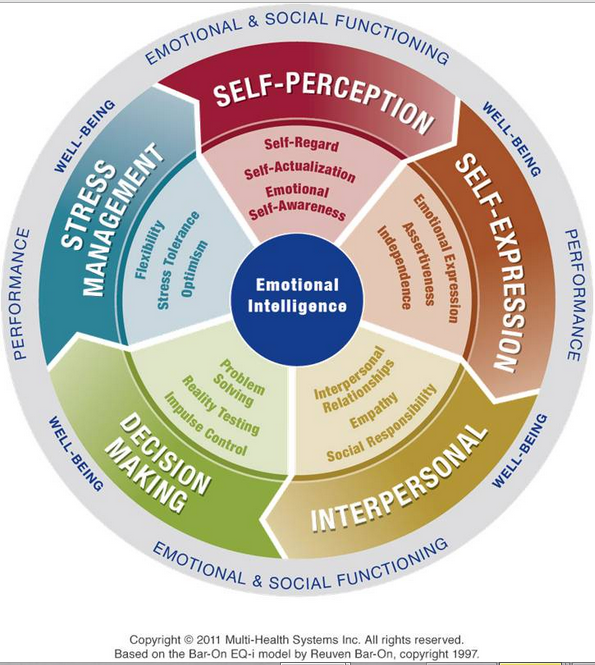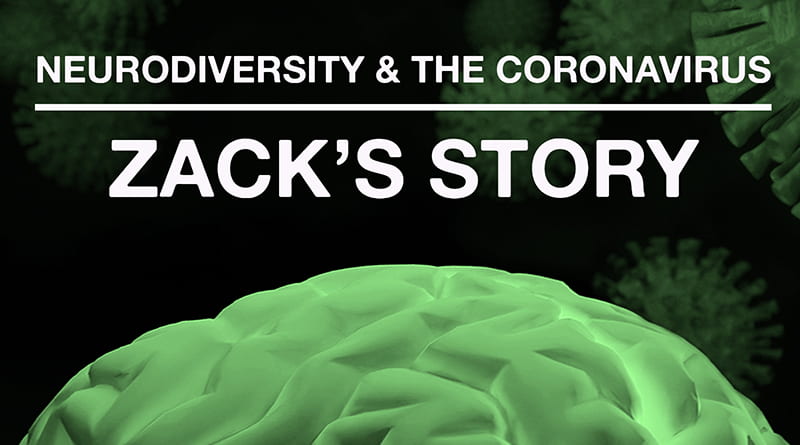
Is Your Dog More Emotionally Intelligent Than You?
By Laura Berger, PCC
The Importance of Emotional Intelligence
There is no question that emotional intelligence (assessed through EQ-i and sounding suspiciously like a unit of the CIA spying on you through your TV during soap operas) is a key facet of effective leadership. It entails the ability to identify, understand and respond to emotions, overcome stress, and be aware of how your actions affect others. But developing high emotional intelligence is not easy—unless you walk on all fours, drool excessively, and shed. Yes, dogs can have high emotional intelligence. But worry not. You, too, can be as emotionally intelligent as man’s best friend. Simply adopt a few key traits, following some of the EQ-i-based pointers below, and unleash your inner poodle!

Interpersonal
- A strong company culture demands collaboration, and effective and rich teamwork is best accomplished through interpersonal relationships. And no, knowing your colleagues’ names, job titles and irritating habits do not qualify. Consider how dogs “meet” other dogs and people – by sniffing areas to remain nameless. They use this greeting not to say “hello,” but rather to collect information about the other, including the gender, health status, temperament, and so much more. They have an inherent curiosity that we could certainly use more of in the workplace. So the next time you encounter Steve from accounting, get a whiff of insight that could be useful in your next brainstorming meeting! OK, seriously, every time I see my dog meet another, I am quite grateful that we don’t engage in such greetings. Yech! But in the end (oh, another pun), any curiosity from you will be appreciated and remembered, going a long way to nurturing what could be an important relationship.
Decision Making
- Problem solving is the core responsibility of all leaders, which is why you must get past your emotions and see problems as opportunities to face head-on. Have you ever watched a dog try to enter a doorway narrower than the stick in her mouth? Rather than become consumed with frustration and panic, they instead takes a step back—unless you’re watching them on YouTube—assesses the doorway’s unfortunate width, and uses trial and error until they enter successfully, stick in tow. So the next time life hands you an over-sized stick, remember that solving the dilemma will take a level head, a smidge of time, and perseverance.

- The importance of impulse control in maximizing workplace success and satisfaction in life cannot be overstated but is all too rare among adults. We buy things we don’t need, check our phones like there is a winning lottery ticket in there somewhere, and fly off the handle when a colleague wrongs us. When it comes to impulse control, dogs can be conditioned. With some treats and repetition, Sparky can perfect this skill. Consider implementing a similar operant conditioning technique—to learn to control your own impulses, even possibly as you would with your dog, saying “stay, stay, stay” to yourself before you speak. And luckily, freeze-dried ice cream, rather than liver, is quite the human treat!
Self-Expression
- Conflict management in the workplace far too often neglects emotional expression. Instead, many of us have the tendency to avoid healthy confrontations with colleagues for fear of lousy outcomes. Dogs, on the other hand, embrace conflict. Irrespective of how great or small the issue, dogs are upfront about their displeasure. Forget to feed them in the morning, take them for their afternoon walk, or leave them home alone for too long? Different dogs handle things in different ways, but you certainly won’t be getting the silent treatment. And after expressing their frustration, they quickly forgive and move on—two invaluable lessons when handling workplace conflicts—back to their full-time job of begging for food.
- A common complaint among CEOs is employees not asserting themselves or commanding a presence. Instead, they are doers who keep their heads down—conduct that will not lead to promotion. Think about dogs who want something, whether it be a treat, walk or belly rub. Their instinctive action is to bark or whine incessantly until their needs are met. Many of them will even just stare you in the eye until you yield, a behavior I in no way condone when dealing with your CEO. But they do it with confidence—heads held high, tails wagging. The next time you develop a new strategy or have an upcoming meeting, remember that your dog would speak up with zeal to achieve your desired outcome. But be sure not to bark or whine about it! Just follow through in English with some firm, kind words.
Stress management
- Feeling like you have no control of certain outcomes at work that create immense stress? A key component of stress management is flexibility, demanding the ability to adapt to unfamiliar, unpredictable or dynamic circumstances. A rigid routine can precipitate inflexibility that ultimately hinders performance and success. You know who couldn’t care less about structure? Your dog. Not only do they have to take walks led by a leash, but they are forced to move their bowels in public on your schedule. And yet, they love every minute of every outing. Do they resist you when an alternate route is taken? Rarely, if ever. How flexible are you when you’re not in control? Perhaps your project took an unexpected turn. Do you dig your heals? Catch a fit? Or are you like your dog? Think about how much easier your life would be if you were flexible in managing things beyond your control.
So take some pointers from Fido, and increase your emotional intelligence! And if you are curious to know how your emotional intelligence measures up, take this EQ-i assessment.
This article was originally published here, and is reprinted with the author’s kind permission.
Featured on ABC, Huffington Post Live, The Dr. Oz Show with Deepak Chopra, in CNBC, US News and World Report, Yahoo Finance, Self Magazine, The Miami Herald, and radio shows across the country, Laura Berger, PCC is a leadership expert in corporate and personal development, speaker, media personality, certified executive coach, expert blogger for Psychology Today and The Huffington Post, and bestselling author.
A travel aficionado and animal welfare advocate, she is founder of Berdéo Group. She has spent 20+ years counseling leaders at enterprises such as, The Walt Disney World Company, PricewaterhouseCoopers, Volvo Group, Leo Burnett Worldwide, American Hospital Association, JP Morgan Chase, Comcast NBC, Willis Group, Publicis Group, Big Brothers Big Sisters, and Merrill Lynch.
She is a confidant of CEOs, partners and senior executives who consistently extend their potential to make their companies flourish. She helps clients to achieve clarity and weigh alternatives, seeing and owning obstacles and opportunities by looking from the outside in.
Listed as one of 100 Truly Amazing Women, June 2012 Woman of Focus, certified by the International Coach Federation as a Professional Certified Coach (PCC) and a member of the Joe DiMaggio Children’s Foundation, Laura actively utilizes her extensive network and span of influence to enable those she serves to not only blast through their speed limits at work, but also to be giving of themselves in life.
She is an inspirational speaker and has extensively served as a forum panelist on topics such as how to negotiate like a woman and as the keynote speaker at multiple venues including Merrill Lynch, Strategy& (PwC), Society for Human Resource Management (SHRM), the National Association for Professional Women, Inspiration University and National Association of Women Business Owners (NAWBO). As an in demand speaker, her clients happily invite her back to engage, inspire and move their participants to action. She is co-author of two books, “Fall in Love Again Every Day” and bestseller, “Radical Sabbatical”.




